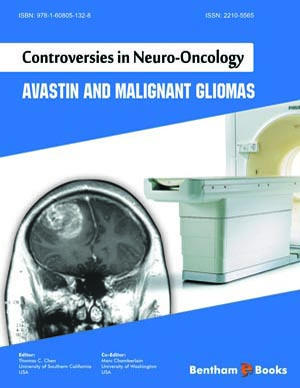Abstract
Vascular endothelial growth factor (VEGF) is the key protein in the regulation of pathological angiogenesis, a hallmark of glioblastomas. Inhibition of VEGF has become a major strategy in glioma therapy. Most clinical trial data generated to date have been with bevacizumab, a humanized monoclonal antibody against VEGF. Aflibercept (VEGF Trap; Regeneron, Inc.), is an engineered soluble receptor made from extracellular domains of VEGFR1 and VEGFR2 which binds to all isoforms of VEGF and to placental growth factor (PlGF). The avidity with which aflibercept binds to VEGF-A and VEGF-B is significantly higher than that for bevacizumab. The toxicities observed include hypertension and proteinuria and are similar to those with other therapies targeting the VEGF pathway. A phase II trial in patients with relapsed high-grade glioma demonstrated encouraging activity. Ongoing trials are evaluating aflibercept in combination with temozolomide and radiation in newly-diagnosed glioblastoma.


 Download PDF Flyer
Download PDF Flyer